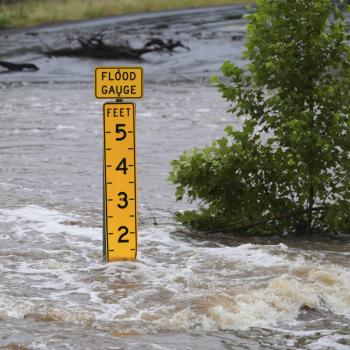“Do not let your hearts be troubled. Believe in God, believe also in me. 2 In my Father’s house there are many dwelling places. If it were not so, would I have told you that I go to prepare a place for you? 3 And if I go and prepare a place for you, I will come again and will take you to myself, so that where I am, there you may be also. 4 And you know the way to the place where I am going.” 5 Thomas said to him, “Lord, we do not know where you are going. How can we know the way?” 6 Jesus said to him, “I am the way, and the truth, and the life. No one comes to the Father except through me. (John 14:1-6)
Whenever someone dies at an early age, we inevitably want to know, “Why.” Why can life be so painfully brief? Why does a husband leave behind a wife — or a wife leave behind a husband? Why does a father or mother leave behind children? Or a parent outlives a child?
And the longer we wrestle with these questions, the more we realize that the pain runs far deeper than even those questions suggest. Because — if we are honest with ourselves – the real question is, why does death exist at all?
After all, the assumption that children should outlive parents or that death later in life is somehow “natural” are simply coping mechanisms. A way of walling out at least some of life’s catastrophes.
These questions, of course, are not abstract considerations. They are existential and painful. They take shape in our hearts long before they take shape in our minds. And they are as much on the hearts and minds of Christians as they are on the hearts and minds of people who do not believe. In fact, they may be even more acute for Christians.
After all, if people still die, then what is the value of the Christian faith? And if death is universal — as it obviously is — then why should Christians persist in their faith?
The answer lies in getting clear about just what the Bible promises and what it doesn’t promise. And the truth is, those promises are very different from the magical version of Christianity that is so often on offer.
The Bible does not promise that Christians will be exempt from death and grief. It promises that we will not grieve without hope.
The Bible does not promise that death will be vanquished in this world. It promises that the power of death has been broken and that death will not prevail on the other side of the grave.
The Bible does not promise that when we die we will become angels or spirits without connection to this world. The Bible promises us that God is in the process of renewing heaven and earth, and that we will be a part of that renewed creation — bodily, recognizably the people we are now, but transformed.
But it is equally clear that this process of renewal is not yet complete. And that, with Christ, those baptized into his life are engaged in a battle with the forces of death that requires a faithful alliance with the one who bears the abundant mercy of God in the long, slow struggle to make his love manifest to the world.
We are, then, as the Apostle Paul puts it, living in a world that is in the throes of giving birth, and that existence is not easy or free from death and loss. This is why, even in the presence of Jesus, Thomas complains, “Lord, we do not know where you are going. How can we know the way?” We, like Thomas, would prefer that things were clearer, decisively better, and free from pain and confusion.
But that is not the world in which we live. And, on reflection, it becomes clear that the message of the Bible would be cruelly misleading, if it described our situation in any other way. We would know that we are being lied to. We could see the evidence that all is not right, every, single, day.
So, it is no surprise that Jesus does not ignore our questions or deny our pain. Instead, he tells Thomas, “I am the way, and the truth and the life. No one comes to the Father except through me.” The response of Jesus is often read as words meant to explain who is saved and who is not. But in the context of the Gospel story, it is more likely an answer to the existential and painful questions that we share with Thomas.
The answer to the questions that the death of the young raises for us cannot be answered by offering a prescription or by solving the problem of evil. They can only be answered by staying close to Jesus and by following him. In a world still marked by grief, it is a person, not a prescription that we need.
So, the invitation Jesus offers is offered in the shadow of the cross, in the last hours of his life, in the face of everything that contradicts the message of the Gospel. He, too, died young. He left behind those he loved. His execution seemed to extinguish the light of his life. His death was without justification. But the elements of his suffering that he shares with us are the very reason that John can argue that we abide in him, and he abides in us. (John 15:4)
It is important to note, however, that the word, “abide”, is not about a passing acquaintance or a momentary acknowledgement. It is about being held and kept. It is about a strong, fibrous, consoling connection that allows us to share our suffering with Jesus and – at the same time – enter into his suffering — knowing that alone, our suffering is impossible to carry, but wed to his, there is a way out.
This is the life to which we are called in a world that is not yet all that it will be. But it is certainly in the making. May we abide in him and he in us.













